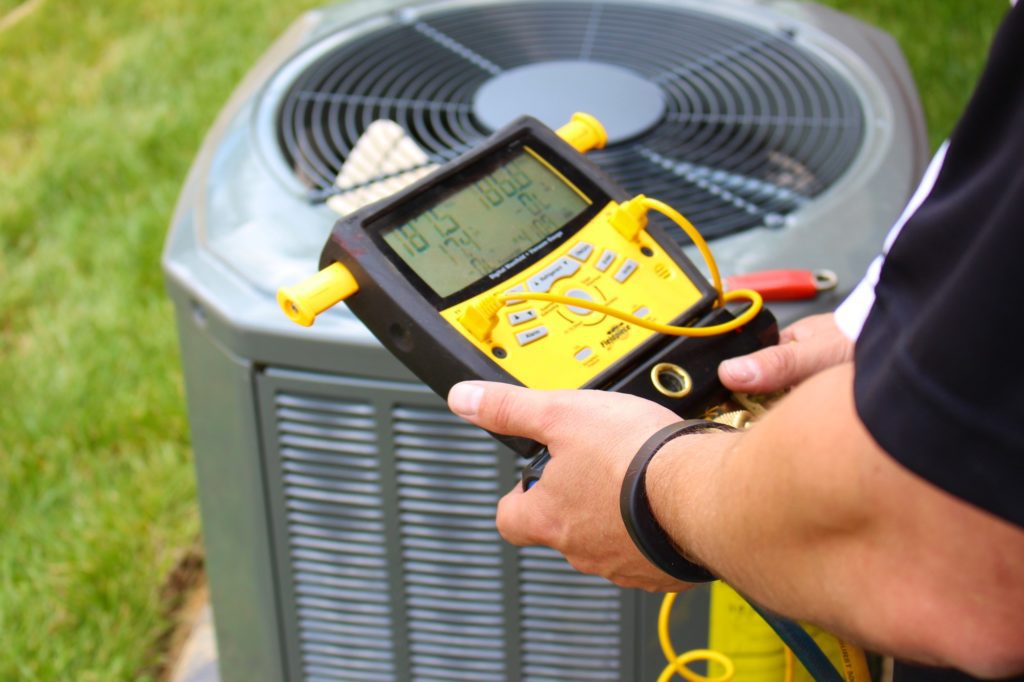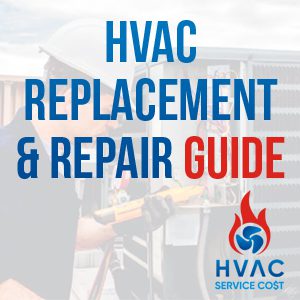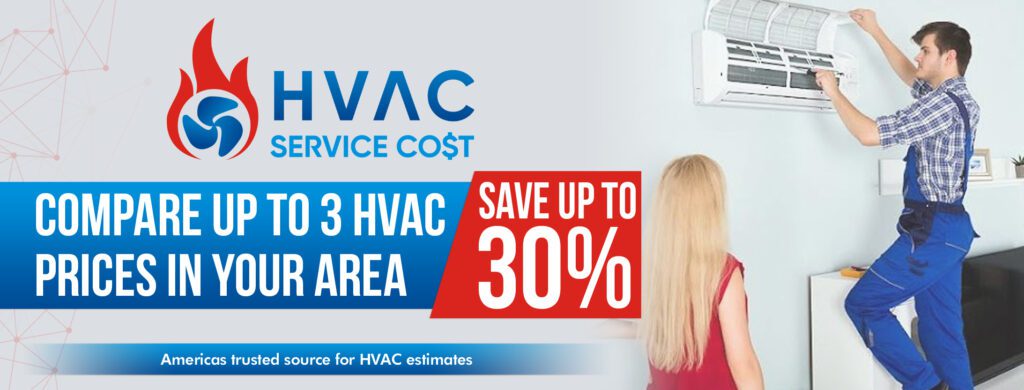
Navigating Comfort: Your Guide to Optimal HVAC Services
In the bustling world of technology and comfort, an efficient and responsive Heating, Ventilation, and Air Conditioning (HVAC) system is no longer a luxury but a necessity. In every season, you deserve consistent comfort, clean air, and efficient energy usage, and this guide will help you navigate the selection, maintenance, and repair of your HVAC systems.
COMPARE QUOTES NOWDeciphering Your HVAC Needs
Understanding your unique HVAC needs is the first step towards optimal comfort. Start by considering the size and design of your space, your climate, and your energy consumption goals. A professional HVAC technician can conduct a thorough assessment and provide tailored recommendations. Whether you’re looking to install a new system, upgrade an existing one, or identify and fix issues, a detailed understanding of your requirements is crucial.
To ensure the optimum operation of your HVAC system, it’s essential to stay alert to signs that your HVAC system has a need going unmet. Your heating, ventilation, and air conditioning system will often communicate its issues, and understanding these signals is paramount for timely intervention and maintenance. Below are some potential signs and steps to understand and address them.
Inconsistent Temperature
If you’re experiencing inconsistent temperatures in different parts of your home or office, it might be a sign that your HVAC system is not operating as it should. It could be a result of several issues, including duct problems or issues with the thermostat.
What to Do:
Consider having a professional perform a thorough inspection to identify and resolve the issue. An expert can recalibrate the system controls, ensuring uniform temperature distribution.
Unusual Noises
Unusual noises from your HVAC system such as banging, clanging, or rattling, indicate that something within the system is not working correctly. It could be a loose or broken part, leading to inefficient operation and potential further damage if left unaddressed.
What to Do:
Don’t ignore these noises. Promptly contact a professional technician to inspect your HVAC system. They can identify the source of the noise and carry out necessary HVAC repairs or replacements.

High Energy Bills
A sudden spike in your energy bills without a corresponding increase in HVAC usage is a red flag. It might mean the system is working harder than it should to maintain the desired temperatures, indicating possible inefficiency or malfunction.
What to Do:
Review your energy consumption and have a technician perform a comprehensive system efficiency assessment. Addressing any found inefficiency not only stabilizes your bills but also prolongs the system’s life.
Poor Air Quality
If you notice a decline in your indoor air quality, such as increased dust or a musty smell, it might be connected to your HVAC system. It could be a result of dirty filters, leaks in the ducts, or issues with the system’s ventilation.
What to Do:
Regularly replace or clean HVAC filters and schedule professional maintenance services to inspect and clean ducts and ensure the system adequately ventilates your space.
Frequent Repairs
Constant need for repairs is a significant sign your HVAC system might be nearing the end of its life or is not suitable for your needs.
What to Do:
Consult an HVAC professional to evaluate whether it’s more practical to continue repairing the current system or invest in a new, more reliable, and efficient system.
In essence, understanding your HVAC system and its needs require constant attention and responsiveness to its signals. Regular maintenance and timely intervention, backed by professional advice and services, can ensure your HVAC system continues to function effectively, ensuring consistent comfort and efficiency in your space.
Selecting the Right HVAC System
Choosing the correct HVAC system is a decision that will impact your comfort and utility bills for years to come. Several types of HVAC systems are available, each with its own advantages and limitations. Central air conditioning, ductless mini-split systems, and heat pumps are among the most popular choices. It’s essential to work with a trusted HVAC service provider to ensure the selected system aligns with your needs and budget.
The process involves considering various factors, including the size and design of your space, your specific heating and cooling needs, and your budget. Below is a guide to help you in understanding and navigating through the different aspects of selecting the right HVAC system for your home or office.



Different Types of HVAC Systems
1. Central Air Conditioners and Heat Pumps
- Functionality: Central air conditioners provide cooling for your entire home, while heat pumps can offer both heating and cooling.
- Suitability: Ideal for larger homes or buildings that require consistent temperature throughout.
2. Ductless Mini-Split Systems
- Functionality: These systems deliver air directly into different zones.
- Suitability: Perfect for homes or areas where ductwork is not feasible.
3. Furnaces
- Functionality: Provide heat to the interior of a building from fuel combustion or electric heating.
- Suitability: Suitable for areas with harsh winters.
4. Hybrid Systems
- Functionality: Combine the features of a furnace and a heat pump.
- Suitability: Ideal for areas with mild to moderate climate conditions.
Identifying Your HVAC Needs and Wants
Assess Your Space
Conduct a thorough assessment of your space. The size, design, insulation, and geographical location will influence the type and size of HVAC system you need. An oversized or undersized system can lead to inefficiency and excessive wear and tear.
Evaluate Your Budget
Beyond the initial investment, consider the operational cost of the HVAC system. More efficient systems might cost more upfront but will save you money in the long term on energy bills.
Consider Energy Efficiency
Look for HVAC systems with higher SEER (Seasonal Energy Efficiency Ratio) ratings. An energy-efficient system will contribute to reducing your carbon footprint and lowering energy bills.
Review Additional Features
Some HVAC systems come with additional features like programmable thermostats, zoned heating and cooling, and air purifying capabilities. Identify what additional features are important to you for enhanced comfort and convenience.
COMPARE QUOTES NOWIn the quest to select the right HVAC system, your objective should be to find a balance between your needs, wants, and budget. Investing time in understanding the different types of HVAC systems, assessing your space, and outlining your specific requirements will go a long way in making an informed decision. Remember to consult with HVAC professionals for a comprehensive need assessment and personalized recommendations. Their expertise will guide you in choosing an HVAC system that aligns with your needs and enhances your living or working environment.



Ensuring Regular Maintenance
Routine maintenance is crucial for the longevity and efficiency of your HVAC system. Regular check-ups by professional technicians can prevent small issues from becoming significant problems, enhancing the system’s lifespan and functionality. Maintenance services often include cleaning or replacing filters, checking system controls, inspecting insulation, and ensuring all components are in working order.
A well-maintained HVAC system operates optimally, ensuring that energy is not wasted by the system having to work harder than necessary to maintain the desired indoor climate. According to the U.S. Department of Energy, regular maintenance and timely repairs can help to reduce the energy consumption of your HVAC system by 10-25%. Maintaining your HVAC system not only ensures your comfort throughout the various seasons but also contributes to global energy conservation efforts.
Handling Repairs Promptly
Ignoring signs of HVAC issues can lead to more severe problems and costly repairs in the future. Unusual noises, inconsistent temperatures, unexpected increases in energy bills, or a sudden decline in system performance are common indicators of HVAC problems. Timely intervention by expert technicians is crucial for swift and effective problem resolution.
Upgrading Your System
When your HVAC system is no longer meeting your needs efficiently, consider an upgrade. Modern HVAC systems offer improved energy efficiency, quieter operation, and enhanced performance, which not only increases comfort but also reduces energy bills.
Environmental and Economic Considerations
Besides ensuring comfort, modern HVAC systems are designed to be environmentally friendly. Selecting energy-efficient HVAC solutions contribute to lower carbon emissions and reduced energy costs, aligning with global sustainability goals. Government and manufacturers often offer incentives, rebates, and financing options for energy-efficient HVAC system installations, making them an economically smart choice.
COMPARE QUOTES NOWUnderstanding your HVAC needs, selecting the right system, ensuring regular maintenance and prompt repairs, and considering upgrades are vital steps in ensuring your HVAC system provides optimal comfort, efficiency, and reliability. In the quest for consistent comfort and energy efficiency, partnering with a knowledgeable and experienced HVAC service provider is essential. They can guide you in making informed decisions, tailored to your specific needs and budget, ensuring your HVAC system continues to serve you effectively and efficiently in all seasons.



Hiring an Experienced HVAC Contractor
Once you have a solid understanding of your HVAC needs and the type of system that would suit your space best, the next critical step is to hire a reliable and experienced HVAC contractor. A professional contractor will ensure that the system is installed correctly, operates efficiently, and lasts as long as possible.
Why Hire a Professional Contractor?
Proper Installation
One of the primary reasons for hiring a professional contractor is to ensure the proper installation of your HVAC system. Improper installation can lead to reduced system efficiency, frequent breakdowns, and a shorter lifespan for the unit.
Expert Advice and Customized Solutions
A professional contractor can provide valuable insights and recommendations for your specific needs and space requirements. They can suggest the most suitable systems, offer customized solutions, and guide you in making cost-effective decisions.
Maintenance and Support
Most professional contractors also offer maintenance services and support for your HVAC system. Regular maintenance is crucial for keeping the system functioning efficiently and preventing major issues and costly repairs.
COMPARE QUOTES NOWWhat to Look for in an HVAC Contractor?
Certification and Licensing
Ensure the contractor you choose is certified and licensed to operate in your area. This assures that they have the necessary knowledge, skills, and standards to perform the job effectively.
Experience and Reputation
Consider the contractor’s experience and reputation in the industry. Experienced contractors are likely to be more reliable and competent in handling various HVAC issues and installations.
Clear and Detailed Estimates
A reputable contractor should provide clear and detailed estimates for the project. This includes the cost of the system, installation charges, and any additional expenses.
Reviews and References
Check reviews and ask for references from past clients to gauge the contractor’s reliability, quality of work, and customer service.



Choosing the right HVAC system and ensuring its proper installation and maintenance is paramount for your comfort, energy efficiency, and the longevity of the system. Taking the time to understand your HVAC needs, exploring different system types, and hiring a reputable HVAC contractor are essential steps towards achieving optimal heating and cooling in your space. Your efforts in making well-informed decisions in these areas will contribute significantly to creating a comfortable and energy-efficient environment in your home or office.
COMPARE QUOTES NOWExploring Maintenance Options
Maintaining your HVAC system is an ongoing task that is crucial for ensuring its optimal performance, longevity, and efficiency. Regular maintenance can help prevent major problems and unexpected breakdowns, which can be particularly inconvenient during extreme weather conditions.
Types of Maintenance
Preventive Maintenance
Preventive maintenance involves regular inspections, cleaning, and servicing of your HVAC system to keep it running efficiently. This type of maintenance helps in identifying and addressing issues before they escalate into major problems.
Repair Maintenance
When issues do arise, timely repair maintenance is essential to restore the functionality of your HVAC system. A professional contractor can efficiently handle repairs, ensuring that the system operates as intended.
Maintenance Schedule
A proper maintenance schedule should be established to routinely check the different components of the HVAC system. This typically involves:
- Changing or cleaning air filters every 1-3 months.
- Inspecting the system for issues at the beginning of summer and winter.
- Annual professional check-up and servicing.
Benefits of Regular Maintenance
Regular maintenance has various benefits:
- Enhances system efficiency.
- Extends the lifespan of the HVAC system.
- Reduces energy bills by ensuring the system operates at optimal efficiency.
- Prevents unexpected breakdowns and costly repairs.
- Ensures consistent comfort levels in your space.



Seasonal HVAC Maintenance: Ensuring Efficiency All Year Round
Maintaining your HVAC system is crucial for its efficiency, longevity, and your comfort. With the change of seasons, different maintenance tasks become necessary to ensure that the system functions optimally. Let’s delve into the specific HVAC maintenance that should be carried out seasonally.
COMPARE QUOTES NOWSpring
Inspection and Cleaning
Spring is an ideal time to have your HVAC system inspected and cleaned. As the weather warms, ensuring that your air conditioning system is clean and functioning properly is crucial to keeping your space cool and comfortable.
Filter Replacement
Changing or cleaning the air filters is essential during spring. Clean air filters allow your HVAC system to operate more efficiently and provide better indoor air quality.
Summer
System Check and Calibration
In the summer, have a professional HVAC technician check your system and calibrate it for optimal performance. Proper calibration ensures that your system is not overworking, which can lead to higher energy bills and decreased system lifespan.
Duct Inspection
Inspecting the ductwork for leaks or blockages is crucial in the summer. Properly sealed and unobstructed ducts allow for efficient air circulation and cooling.
Fall
Heating System Check
In the fall, turn your attention to your heating system. Have a technician inspect your furnace or other heating equipment to ensure it’s ready for the colder months ahead.
Thermostat Calibration
Ensure that your thermostat is calibrated correctly to keep your space comfortably warm without wasting energy.
Winter
Insulation Inspection
Winter is the time to inspect your insulation. Adequate insulation is crucial for preventing heat loss, ensuring that your heating system does not have to work overtime, which can lead to excessive wear and tear and higher energy bills.
Regular Filter Check
In winter, regularly checking and changing the air filters is vital to ensure the efficient operation of your heating system and maintain good indoor air quality.
COMPARE QUOTES NOWPerforming these seasonal HVAC maintenance tasks can help in preventing unexpected breakdowns, improving energy efficiency, and extending the lifespan of your HVAC system. It also ensures consistent comfort throughout the year, regardless of the season. Hiring a professional HVAC service for these seasonal maintenance tasks is a smart investment that can save you time, hassle, and money in the long term. Properly maintained HVAC systems operate at peak efficiency, keeping your energy bills low and ensuring your comfort in every season.



Beyond HVAC Services: Upgrading Your HVAC System
Over time, it may become necessary to upgrade your HVAC system to a newer, more efficient model.
Signs You Need an Upgrade
- Your HVAC system is more than 10-15 years old.
- Frequent repairs and maintenance issues.
- Significant increase in energy bills.
- Inconsistent temperatures and comfort issues in your space.
Choosing the Right Upgrade
When considering an upgrade, it’s crucial to consult with an HVAC professional. They can guide you in choosing a suitable system for your space, ensuring that it is the right size, type, and model for your specific needs and requirements.
Navigating the world of HVAC services doesn’t have to be daunting. By understanding your HVAC needs, exploring various system types, selecting a reputable contractor, maintaining your system regularly, and upgrading when necessary, you can enjoy consistent comfort, efficiency, and reliability from your HVAC system. Taking these steps will help ensure that your HVAC system contributes positively to the comfort and functionality of your space, making it a worthwhile investment for the long term.
COMPARE QUOTES NOWAnalyzing Energy Efficiency and Environmental Impact
In today’s world, energy efficiency and environmental impact are paramount. Your HVAC system plays a significant role in your overall energy consumption, and choosing an environmentally friendly and efficient system can make a substantial difference.
Evaluating Energy Efficiency
Energy Star-rated HVAC systems are proven to be more efficient, conserving energy and saving you money in the long run. When selecting or upgrading an HVAC system, look for the Energy Star label, and consider the system’s SEER (Seasonal Energy Efficiency Ratio) rating. A higher SEER rating indicates greater energy efficiency.
Environmental Considerations
Beyond energy efficiency, it’s important to consider the environmental impact of your HVAC system. Opt for systems that use environmentally friendly refrigerants and have features designed to minimize energy wastage. This not only contributes positively to the environment but also enhances your reputation as a responsible and eco-conscious individual or business.



Ensuring Proper Installation
Proper installation is critical for the performance and efficiency of your HVAC system.
Selecting a Trusted HVAC Contractor
It’s essential to choose a qualified and experienced HVAC contractor to ensure your system is installed correctly. Proper installation optimizes the performance, efficiency, and lifespan of your HVAC system. Conduct thorough research, check reviews, and ask for recommendations to select a trustworthy contractor.
Regular Assessment and Feedback
Post-installation, make it a habit to assess the functioning of your HVAC system regularly. Provide feedback to your contractor and ensure that any issues are addressed promptly. A good contractor will offer follow-up services and be ready to handle any concerns or issues that arise.
COMPARE QUOTES NOWLeveraging Smart Technology
In this digital age, incorporating smart technology into your HVAC system can enhance convenience, control, and efficiency.
Smart Thermostats
Smart thermostats allow you to control and monitor your HVAC system remotely, providing optimal control over your environment and energy consumption. Utilize these devices to schedule your HVAC system’s operation according to your needs, ensuring comfort while optimizing energy use.
HVAC Zoning Systems
Consider implementing HVAC zoning systems that allow you to control the temperature in different areas of your space independently. Zoning systems contribute to enhanced comfort, efficiency, and energy savings, providing you with more control over your environment.
Understanding, choosing, and managing an HVAC system can seem like a complex task, but with the right information and support, it can be a smooth and beneficial process. Keep these factors in mind as you navigate the world of HVAC services, and ensure that your system adds value, comfort, and efficiency to your life and space. Your investment in a high-quality, efficient HVAC system, combined with regular maintenance and smart technology, will pay off in superior comfort, lower energy bills, and a reduced environmental footprint for years to come.
COMPARE QUOTES NOW


Leave a Reply